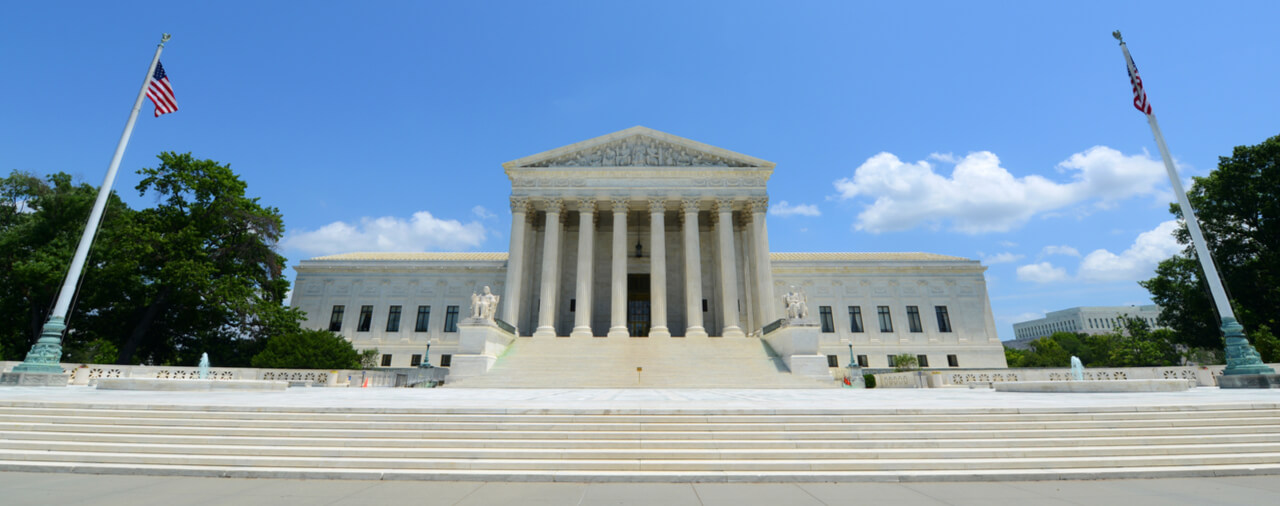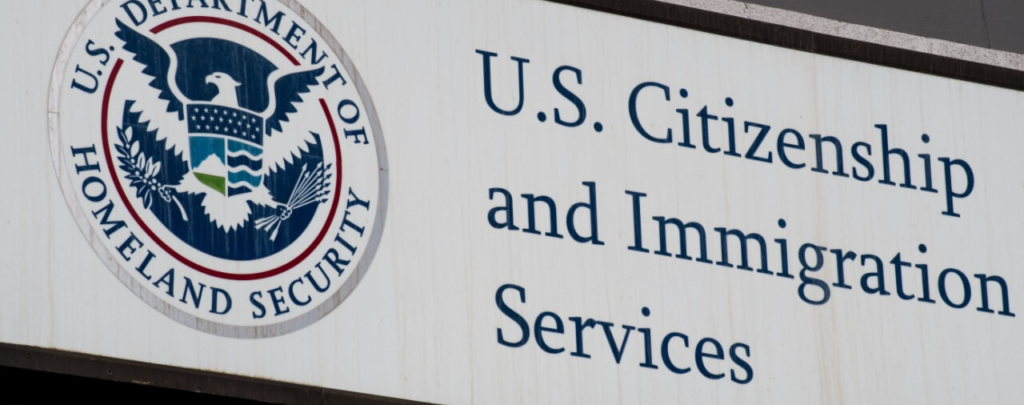Introduction
On June 26, 2017, the Supreme Court of the United States issued a brief per curiam decision (authored by multiple justices) in Hernandez v. Mesa, 582 U.S. ___ (2017) [PDF version]. In Hernandez, the parents of a Mexican national who was shot from across the border by a U.S. Border Patrol agent, endeavored to assert claims for damages against the agent in reliance upon the holding of the Supreme Court decision in Bivens v. Six Unknown Fed. Narcotics Agents, 403 U.S. 388 (1971) [PDF version]. Specifically, although no Federal statute provides for a cause of action against Federal officials for violations of constitutional rights, the parents asked the Supreme Court to find that its decision in Hernandez created an implied cause of action under the Fourth Amendment against the agent. Additionally, the Court was asked by the agent to consider whether the he was entitled to qualified immunity on the claim that the shooting violated the victim’s Fifth Amendment rights.
Ultimately, the Court vacated the lower court decision of the United States Court of Appeals for the Fifth Circuit [PDF version] and remanded the case for further consideration. This was due in part to the Court’s decision in Ziglar v. Abbasi, 582 U.S. ___ (2017) [PDF version] [see article], which had been issued only one week before and which also addressed Bivens. Ziglar v. Abbasi is a decision that may potentially prove to be unfavorable to the petitioner (parents). In this article, we will examine the Court’s per curiam opinion and what it means going forward in the case. Additionally, we will examine the dissenting opinion of Justice Clarence Thomas, and the dissenting opinion of Justice Stephen Breyer (joined by Justice Ruth Bader Ginsburg). Justice Neil Gorsuch took no part in the consideration or decision of the case.
Opinion of the Court: Per Curiam
The facts of the case were disputed, but the Opinion of the Court states that, because the case was resolved in lower court a motion to dismiss the parents’ complaint, it accepted the allegations in the complaint as true for purpose of the opinion.
The allegations are as follows:
On June 7, 2010, Hernandez, a 15-year old Mexican national, was with a group of friends in a cement culvert that separates El Paso, Texas, from Ciudad Juarez, Mexico;
The international boundary between Texas and Mexico runs down the middle of the culvert;
There is a fence on top of the embankment on the United States side;
Hernandez and his friends were playing a game in which, having crossed to the US side of the culvert, they ran up the embankment, touched the fence, and ran back down;
At some point, Mesa arrived on the scene and arrested one of Hernandez’s friends who had crossed into U.S. territory;
Hernandez ran down the embankment and back across the boundary into Mexican territory;
While Hernandez was in Mexican territory, Mesa fired two shots across the border, one of which struck and killed Hernandez; and
Hernandez was unarmed and not dangerous at the time.
The Department of Justice (DOJ) investigated the incident and determined that the shooting “occurred while smugglers attempting an illegal border crossing hurled rocks from close range at a [Customs and Border Patrol] agent who was attempting to detain a suspect.” The DOJ determined that Mesa did not act inconsistently with Customs and Border Protection (CBP) guidance and training on the use of force. The DOJ would have rejected civil rights charges against Mesa on the basis that it had determined that he had not acted willfully or with the intent to violate the law. However, the DOJ also took the position that Mesa could not be charged with violating Hernandez’s civil rights because Hernandez was not in the United States when he was shot.
Hernandez’s parents brought suit against Mesa. Under Bivens, they alleged that Mesa had violated Hernandez’s rights under the Fourth and Fifth Amendments. The United States District Court for the Western District of Texas granted Mesa’s motion to dismiss.
On appeal of the the District Court decision dismissing the complaint, two judges of a three-judge panel of the United States Court of Appeals for the Fifth Circuit affirmed in part and reversed in part. The panel held that Hernandez lacked rights under the Fourth Amendment when the shooting occurred. However, the panel found that Hernandez’s Fifth Amendment rights were violated under Bivens, and that Mesa was not entitled to qualified immunity. The dissenting opinion would have held that Hernandez lacked any Fifth Amendment rights under the circumstances.
The Fifth Circuit granted rehearing en banc (the full Court). In this decision, the Fifth Circuit affirmed the District Court’s dismissal of all claims against Mesa. The Fifth Circuit was divided on whether Mesa’s conduct violated Hernandez’s Fifth Amendment rights, but it held unanimously that Mesa was entitled to qualified immunity. Because of the qualified immunity decision, the Fifth Circuit did not reach the question of the applicability of Bivens.
The Supreme Court agreed to hear the case, and for the foregoing reasons, vacated the Fifth Circuit decision and remanded for further proceedings.
First, the Court addressed whether Bivens is applicable. Please see our full article on Abbasi to learn about the background of Bivens [see section] and the Court’s jurisprudence on “special factors analysis” [see section]. Under Bivens, the Court recognized that, in certain cases, there is an “implied cause of action” for bringing suit against federal officers for alleged constitutional violations. However, under Carlson v. Green, 446 U.S. 14, 18 (1980) [PDF version] and Abbasi, Bivens cannot be extended where there are “special factors” weighing against its extension.
The Court noted that the Fifth Circuit had not had the opportunity to consider how Abbasi may affect the instant case. For this reason, the Court considered it appropriate to remand to the Fifth Circuit for consideration of how to address the Bivens question in light of Abbasi.
Regarding Hernandez’s Fourth Amendment claim, the Court wrote that “[i]t would be imprudent for this Court to resolve that issue when in light of the intervening guidance in Abbasi, doing so may be unnecessary to resolve this particular case.”
Regarding the Fifth Amendment claim, the Court held that the Fifth Circuit erred in finding that Mesa was entitled to qualified immunity. Pertinently, the Fifth Circuit “relied on the fact that Hernandez was ‘an alien who had no significant voluntary connection to …. The United States.’” However, the Court noted that Mesa would have had no way of knowing what Hernandez’s connection was to the United States at the time of the shooting. The Court explained that, under its precedent, only facts known to the officer at the time of the event in question can be considered in determining whether he or she was entitled to qualified immunity. The Court did not address the claim of Mesa and the Government that Mesa was entitled to qualified immunity even if he was unsure of Hernandez’s nationality and ties to the United States, or the claim that Hernandez’s Fifth Amendment claims were not cognizable . The Court held instead that the Fifth Circuit could address those arguments on remand if it deemed necessary.
For the foregoing reasons, the Court vacated the judgment of the Fifth Circuit and remanded for further consideration consistent with its opinion.
Dissent: Justice Thomas
Justice Clarence Thomas took the position that the “case arises in circumstances that are meaningfully different from those at issue in Bivens and its progeny.” Specifically, he noted that the instant case involved cross-border conduct. Referring to his own concurring opinion in Abbasi, Justice Thomas stated that he would have declined to extend Bivens in the instant case and affirmed the judgment of the Fifth Circuit.
Dissent: Justice Breyer (joined by Justice Ginsburg)
Justice Breyer dissented for nearly the opposite reason that Justice Thomas did.
First, writing for himself and Justice Ginsburg, Justice Breyer would have found that Hernandez could assert his Fourth Amendment claim. Citing to Boumediene v. Bush, 553 U.S. 723, 764 (2008) [PDF version], Justice Breyer took the position “that ‘de jure sovereignty’ is not and has never been ‘the only relevant consideration in determining the geographic reach of the Constitution.’” Justice Breyer added that, based on the facts alleged in the complaint, Mesa would not have known at the time of the shooting whether he was shooting at a U.S. citizen or a Mexican national. Furthermore, Mesa never asserted that he knew on which side of the border the bullet would impact when he fired. Justice Breyer also discussed unique features of the culvert as an international border that he found relevant to the analysis. Although we will not go into detail in this article, it is well worth reading by following the link to the decision in the introduction.
Justice Breyer would not have decided whether Bivens applied to the Fourth Amendment claims. Rather, he would have resolved the Fourth Amendment question in Hernandez’s favor and remanded for consideration of whether Bivens applied and whether Mesa was entitled to qualified immunity.
It is worth noting that Justice Breyer authored the dissenting opinion in Abbasi (joined again by Justice Ginsburg) and that he cited to his dissent several times in his dissent in the instant case.
Conclusion
The Supreme Court opted to remand Hernandez v. Mesa to the Fifth Circuit for consideration of how the Supreme Court’s analysis in Abbasi affects that case. Considering both the fact that the instant case presents a novel Bivens scenario and that Abbasi reads Bivens narrowly, it seems unlikely that the ultimate outcome of the litigation will be favorable to Hernandez. However, we will be sure to update the site with more information as the proceedings return to the Fifth Circuit.





